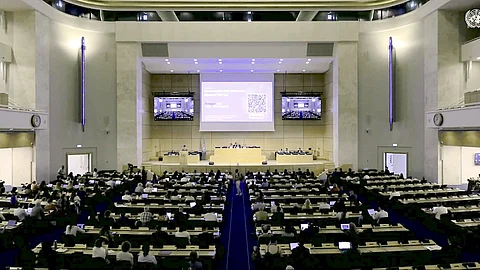

Article 14 of the draft plastics treaty emphasizes the creation of national plans to implement treaty objectives, but countries are divided on whether these should be mandatory.
While some nations advocate for binding, time-bound plans, others prefer flexibility. The outcome of this debate will influence the treaty's enforceability and the consistency of global commitments at the national level.
Article 14 of the draft plastics treaty focuses on the formulation and implementation of national plans to guide country-level action. These plans are intended to operationalize the treaty’s objectives within national contexts, serving as roadmaps for coordination across government sectors, stakeholders, and regional partners. While the concept of national planning received broad acknowledgment, the level of obligation and prescriptiveness around these plans remains a point of contention among states.
Several countries and groups—including Samoa on behalf of Small Island Developing States (SIDS), the Philippines, Rwanda, and Hungary—emphasized the need for national plans to be mandatory, time-bound, and aligned with broader treaty reporting and monitoring efforts. Their proposals call for structured national planning frameworks supported by guidance from the Conference of Parties (COP), especially for developing countries requiring financial and technical assistance.
Others, such as Ghana and Japan, supported the Chair’s draft but sought clarity on the degree of ambition and accountability embedded in these plans. Australia also expressed support but recommended softening some of the terminology. Meanwhile, countries like Kuwait, Saudi Arabia, China, Malaysia and the United States proposed changes that would reduce the binding nature of Article 14. These included calls to shift obligations into more discretionary language, broaden the scope for national flexibility, and in some cases, bracket the entire article. Kuwait explicitly questioned the value of making such planning mandatory under the treaty framework.
Overall, while there is consensus on the value of national planning as a tool for domestic coordination and treaty implementation, there remains divergence on whether it should be a binding requirement. The outcome of this discussion will shape the treaty’s enforceability and determine how uniformly countries translate global commitments into national action
This is a click to zoom map. View the larger image by clicking on it